22 Inspiring Quotes By David Simon That Will Change Your Stance Towards Life
David Simon is a renowned American writer, journalist, author, and producer. He is also popular as the investigating reporter of a reputed newspaper. He was passionate about being a journalist and joined the ‘The Baltimore Sun’ as a police reporter. He worked there for more than a decade, during which he covered various crime scenes. He took a break to write his first book titled 'Homicide: A Year on the Killing Streets' which was critically acknowledged as a ‘true-crime classic’. It was also adapted into a successful Television series which ran for almost six years. This encouraged him to publish his next book called ‘The Corner: A Year in the Life of an Inner-City Neighborhood’ where he further recorded his experiences as a reporter. He also adapted the book into a mini-series that was appreciated by the masses. This motivated him further and he started producing and writing various crime-related shows. His show ‘The Wire’ became very popular and is counted among the best television dramas of all time. But it’s not just ‘The Wire’ for which Simon should be remembered. His thoughts, work, writings, books, interviews and stories reveal his perturb for the society and its future. Go through these quotes and sayings by David Simon which expresses his concerns and views politics, culture, society, drugs and environment.
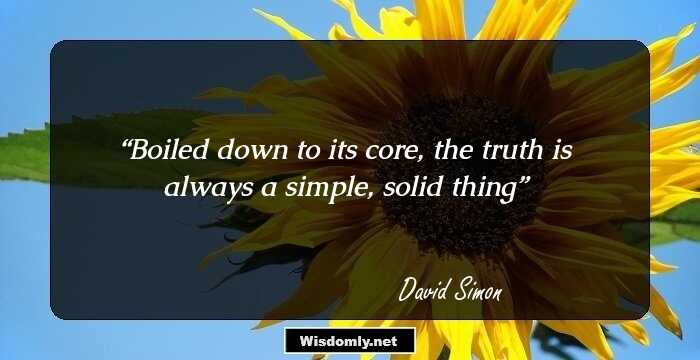
Boiled down to its core, the truth is always a simple, solid thing
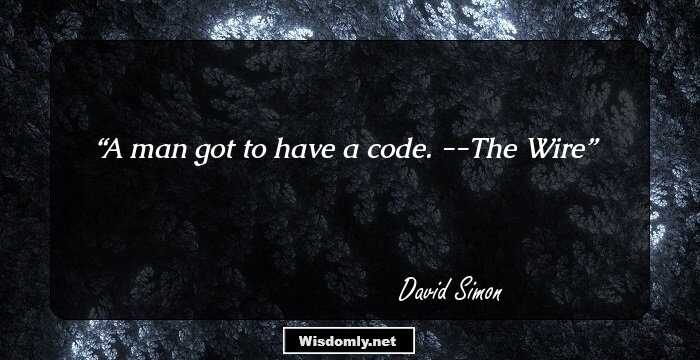
A man got to have a code. --The Wire
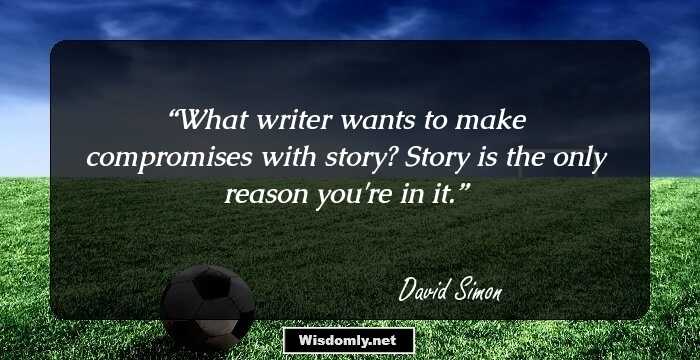
What writer wants to make compromises with story? Story is the only reason you're in it.
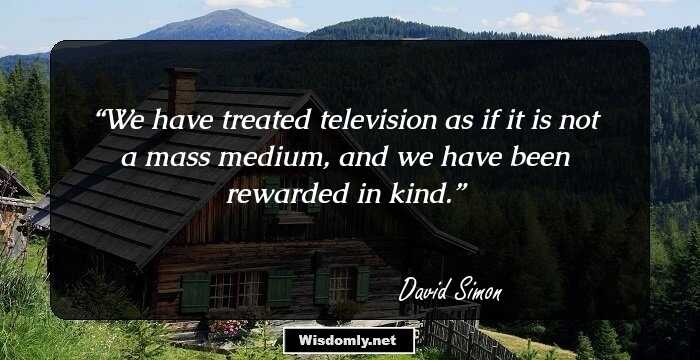
We have treated television as if it is not a mass medium, and we have been rewarded in kind.
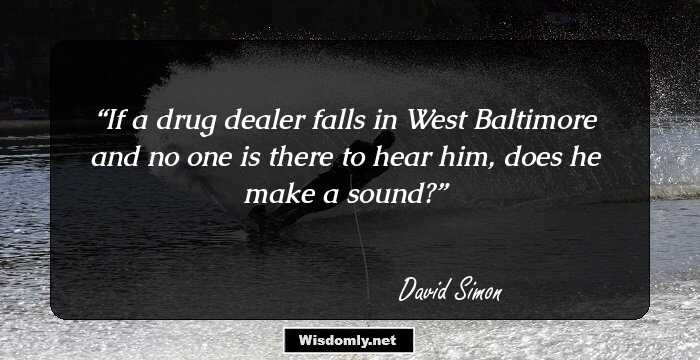
If a drug dealer falls in West Baltimore and no one is there to hear him, does he make a sound?
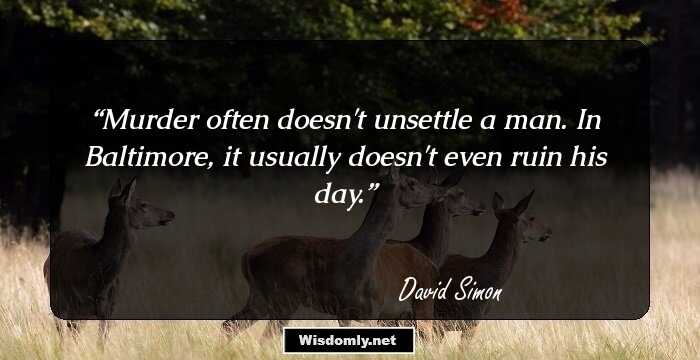
Murder often doesn't unsettle a man. In Baltimore, it usually doesn't even ruin his day.
There are two Americas - separate, unequal, and no longer even acknowledging each other except on the barest cultural terms. In the one nation, new millionaires are minted every day. In the other, human beings no longer necessary to our economy, to our society, are being devalued and destroyed.
![[Y]ou are ... entrusted with the pursuit of that most extraordinary of crimes: the theft of a human life. You speak for the dead. You avenge those lost to the world.](https://www.wisdomly.net/images/quotes/david-simon-14252.jpg)
[Y]ou are ... entrusted with the pursuit of that most extraordinary of crimes: the theft of a human life. You speak for the dead. You avenge those lost to the world.
Albert Camus, a great humanist and existentialist voice, pointed out that to commit to a just cause with no hope of success is absurd. But then, he also noted that not committing to a just cause is equally absurd. But only one choice offers the possibility for dignity. And dignity matters. Dignity matters.
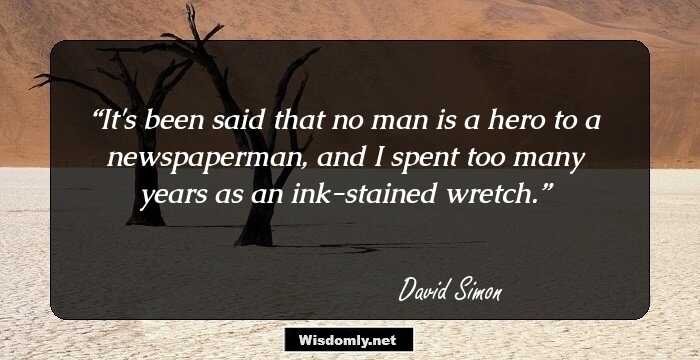
It's been said that no man is a hero to a newspaperman, and I spent too many years as an ink-stained wretch.
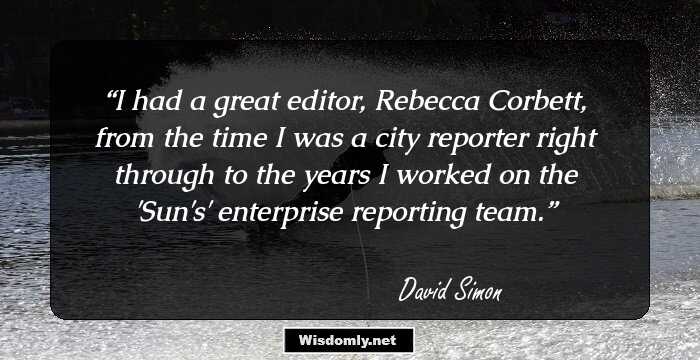
I had a great editor, Rebecca Corbett, from the time I was a city reporter right through to the years I worked on the 'Sun's' enterprise reporting team.
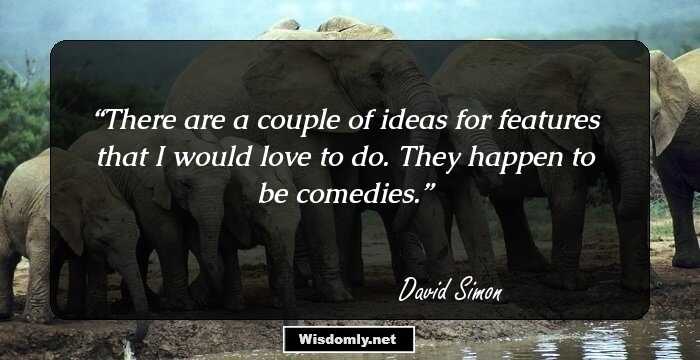
There are a couple of ideas for features that I would love to do. They happen to be comedies.
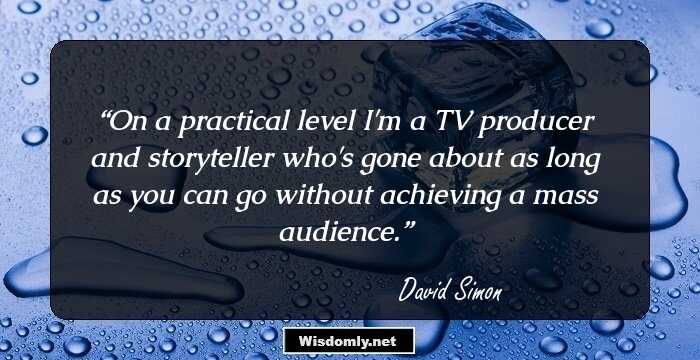
On a practical level I'm a TV producer and storyteller who's gone about as long as you can go without achieving a mass audience.
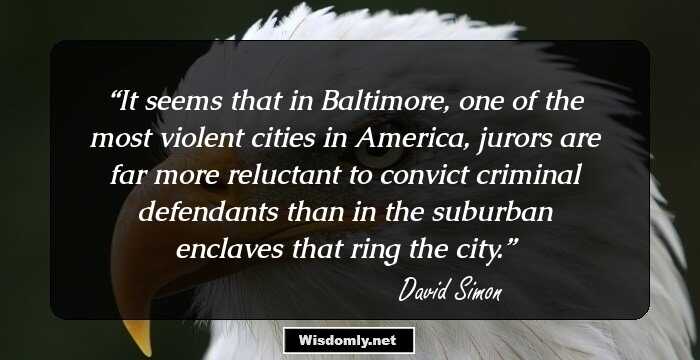
It seems that in Baltimore, one of the most violent cities in America, jurors are far more reluctant to convict criminal defendants than in the suburban enclaves that ring the city.
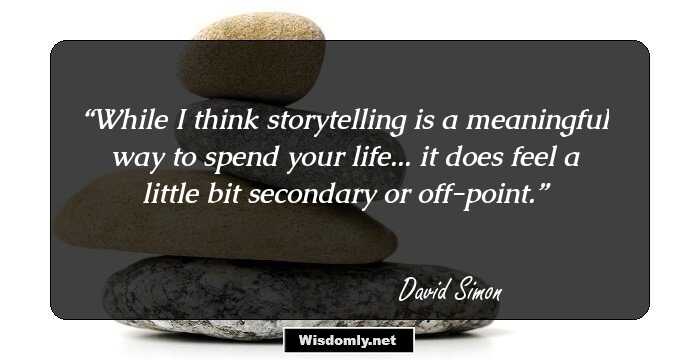
While I think storytelling is a meaningful way to spend your life... it does feel a little bit secondary or off-point.
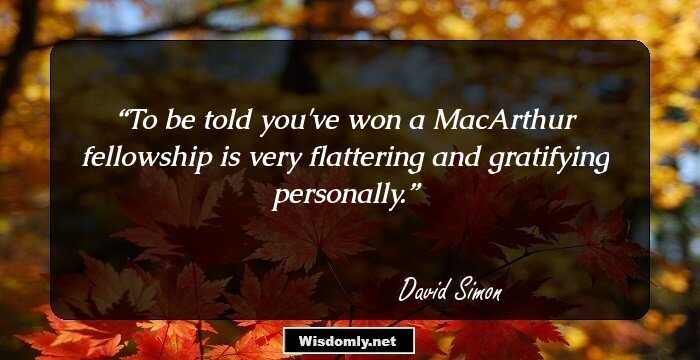
To be told you've won a MacArthur fellowship is very flattering and gratifying personally.
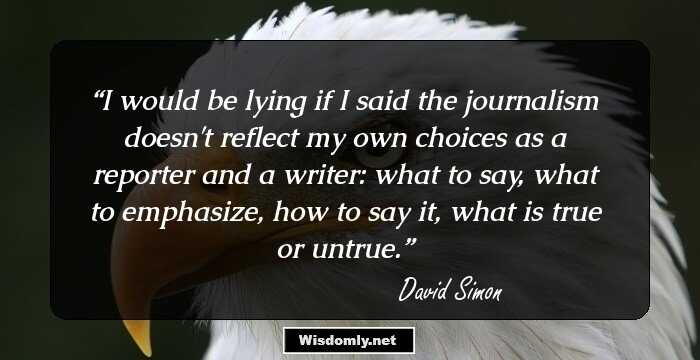
I would be lying if I said the journalism doesn't reflect my own choices as a reporter and a writer: what to say, what to emphasize, how to say it, what is true or untrue.
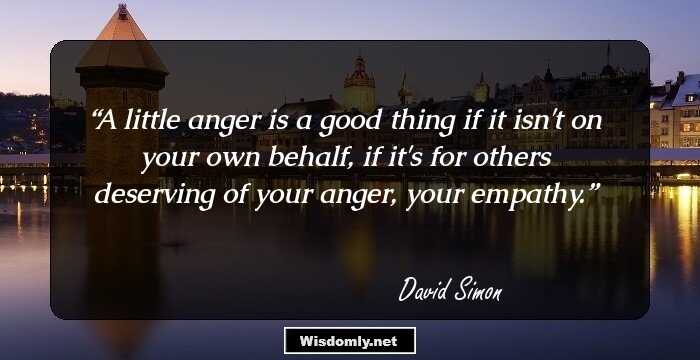
A little anger is a good thing if it isn't on your own behalf, if it's for others deserving of your anger, your empathy.
The why is what makes journalism an adult game. The why is what makes policy coherent and useful. The why is what transforms bureaucrats and foot soldiers and political leaders into viable instruments of rational and affirmative change. The why is everything and without it, the very suggestion of human progress becomes a cosmic joke.
There came this point where I sat down with all my notebooks and I had to start to write, when I thought: this whole notion of writing for the person who understands nothing, the average reader... He has to die! I can't have him in my head. And so the person I started writing for was the homicide detective.
One of the sad things about contemporary journalism is that it actually matters very little. The world now is almost inured to the power of journalism. The best journalism would manage to outrage people. And people are less and less inclined to outrage.
The trick to making a story matter is that every now and then, somebody you care about has to go. If it's somebody that you don't care about, then it doesn't really have - the stakes aren't there. But if you do that every now and then, then the story matters to people. And there are actual stakes involved, emotional stakes.










